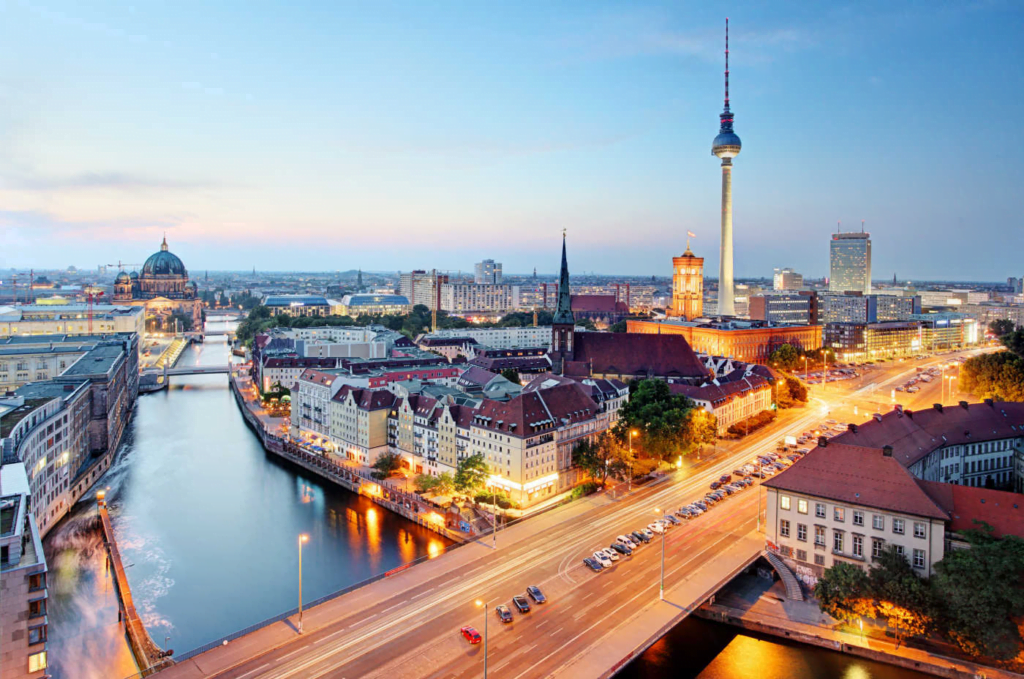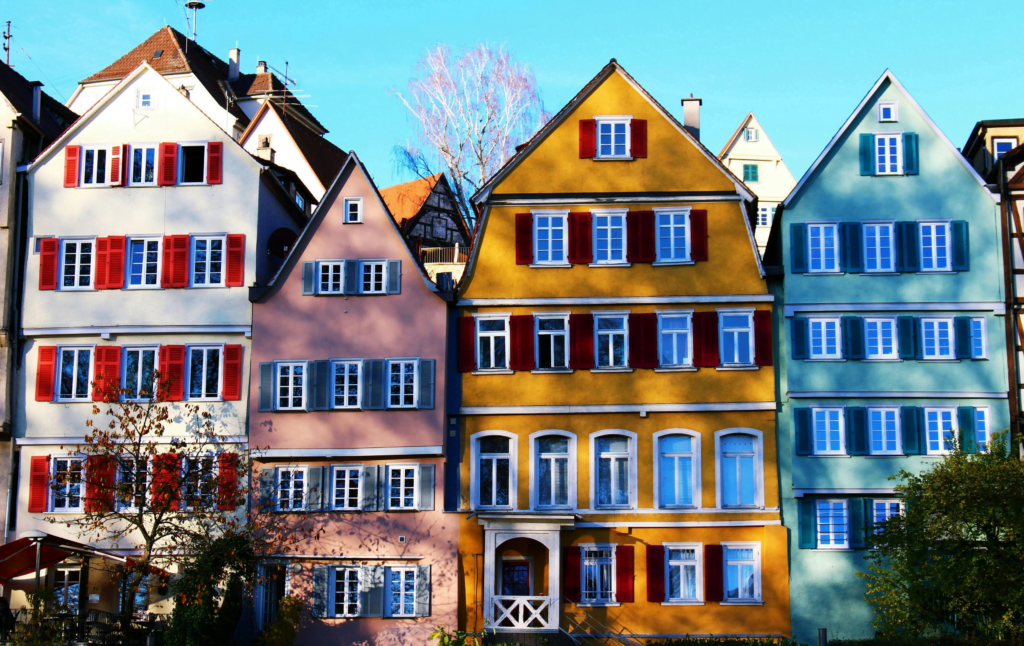
Germany is known for its high quality of life, robust economy, and diverse cities, each offering a unique blend of culture, history, and modernity. When it comes to the cost of living, however, not all cities are created equal. While some cities are affordable and suitable for students and young professionals on a budget, others are more expensive, especially when it comes to housing, utilities, and daily expenses. Understanding the cost of living in various German cities is essential for anyone planning to move to or live in the country.
This article provides a comprehensive overview of the most affordable and the most expensive cities to live in Germany, breaking down factors such as housing, transportation, groceries, and lifestyle costs. It also explores what makes these cities appealing despite their differences in living costs.
Factors Influencing the Cost of Living in Germany
Several factors contribute to the overall cost of living in a particular city, including:
- Housing – Rent prices vary widely across cities, with larger metropolitan areas like Berlin, Munich, and Frankfurt having much higher rents compared to smaller towns or cities in East Germany.
- Utilities – Costs for electricity, water, heating, and garbage disposal.
- Groceries – Prices for everyday necessities such as food, beverages, and household items.
- Transportation – Public transport costs (e.g., bus, train, and tram services) and fuel prices for those who drive.
- Entertainment and Leisure – Costs for dining out, cinema, sports clubs, and cultural activities.
With these factors in mind, let’s explore the most affordable and most expensive cities to live in Germany.
Most Affordable Cities to Live in Germany
Living in Germany doesn’t have to break the bank. Some cities offer a more affordable lifestyle, especially for students, young professionals, and families looking for quality of life without paying premium prices. Here are the most affordable cities:
1. Leipzig
Leipzig is often ranked as one of the most affordable cities in Germany. Known for its vibrant arts and cultural scene, this city in eastern Germany is a popular destination for students and young professionals due to its relatively low rent and affordable cost of living.
- Rent: Rent prices in Leipzig are significantly lower than in major cities like Munich or Frankfurt. A one-bedroom apartment in the city center costs around €600 to €700, while outside the city center, it could be as low as €400 to €500.
- Groceries: Grocery prices in Leipzig are also reasonable, and you can save even more by shopping at discount supermarkets such as Lidl, Aldi, and Netto.
- Lifestyle: The city’s affordable cost of living combined with its rich cultural life makes Leipzig a great place to live for those who value arts, music, and history.
2. Dresden
Dresden is another affordable city in eastern Germany, offering a blend of historical charm and modern amenities. It’s known for its beautiful architecture and cultural attractions, making it a popular choice for students and expats.
- Rent: Rent in Dresden is quite affordable, with a one-bedroom apartment in the city center costing around €600 to €700, and outside the center, it could be as low as €400 to €500.
- Utilities: Utilities in Dresden are reasonable, with heating and electricity costs lower compared to larger cities.
- Transportation: Public transportation is well-developed, and monthly transport passes are affordable, making it easier for students and professionals to commute.
3. Augsburg
Augsburg, located in the state of Bavaria, is an affordable alternative to its more expensive neighbor, Munich. While it offers a quieter lifestyle, Augsburg still has plenty to offer in terms of amenities, culture, and green spaces.
- Rent: Rent prices in Augsburg are lower than in Munich, with a one-bedroom apartment costing around €700 to €900 in the city center and around €500 to €600 outside the center.
- Groceries: Grocery prices are moderate, and dining out is more affordable than in larger Bavarian cities.
- Lifestyle: With a lower cost of living but proximity to Munich, Augsburg is a popular choice for commuters who work in Munich but prefer to live in a more affordable city.
4. Essen
Located in the Ruhr area, Essen is one of the largest cities in the region and is known for being affordable, especially for students and young professionals. The city has undergone significant redevelopment, transforming into a cultural and educational hub.
- Rent: The average rent for a one-bedroom apartment in Essen is around €500 to €600 in the city center and €400 to €500 outside the center.
- Groceries and Utilities: Essen offers moderate grocery and utility costs, making it an affordable city for those looking for an urban lifestyle on a budget.
5. Kiel
Kiel, located in northern Germany by the Baltic Sea, is known for its affordable living costs, especially when compared to cities like Hamburg. It’s a charming coastal city with a relaxed pace of life, making it ideal for students, families, and retirees.
- Rent: Rent in Kiel is lower than in most major cities, with a one-bedroom apartment costing between €500 and €700.
- Transportation: Kiel’s public transport system is efficient and affordable, with lower monthly pass costs compared to larger metropolitan areas.
- Lifestyle: The cost of entertainment and dining out is relatively low, allowing residents to enjoy the seaside city without breaking the bank.
Most Expensive Cities to Live in Germany
While some cities in Germany are known for their affordability, others are significantly more expensive due to higher rents, transportation costs, and lifestyle expenses. Here are the most expensive cities:
1. Munich
Munich is the most expensive city in Germany, known for its high quality of life, vibrant economy, and cultural attractions. As the capital of Bavaria, Munich is a major business hub, which has driven up the cost of living significantly.
- Rent: Rent in Munich is the highest in Germany. A one-bedroom apartment in the city center can cost upwards of €1,500 to €2,000, while even outside the city center, rent averages around €1,000 to €1,500.
- Utilities and Groceries: Both utilities and groceries are more expensive in Munich compared to other cities. Dining out, entertainment, and transportation also add to the cost of living.
- Lifestyle: Despite the high costs, Munich offers an exceptional quality of life, with world-class cultural events, proximity to the Alps, and a booming job market in industries such as finance, tech, and manufacturing.
2. Frankfurt
Frankfurt, the financial capital of Germany and home to the European Central Bank, is another expensive city. It’s a global financial hub with a large expat community, leading to higher housing costs.
- Rent: The cost of rent in Frankfurt is among the highest in Germany, with a one-bedroom apartment in the city center costing around €1,200 to €1,800. Outside the city center, rents drop to around €900 to €1,200.
- Transportation and Utilities: Frankfurt’s transportation system is efficient but also comes at a higher cost. Utilities and daily expenses such as groceries and dining out are similarly more expensive than in other cities.
- Lifestyle: As an international city, Frankfurt offers a vibrant cultural scene, with numerous restaurants, museums, and entertainment venues, although at a premium price.
3. Hamburg
Hamburg, the second-largest city in Germany, is a major port city known for its maritime history, cultural landmarks, and dynamic economy. It is one of the most expensive cities to live in, particularly in terms of rent and lifestyle expenses.
- Rent: The cost of rent in Hamburg is high, with a one-bedroom apartment in the city center costing around €1,000 to €1,600. Even in the outskirts, rent is relatively high, ranging from €800 to €1,200.
- Groceries and Dining: Hamburg has a higher cost of groceries and dining out compared to smaller cities, which adds to the overall expense of living there.
- Lifestyle: The city’s location near the North Sea, combined with its historical importance, makes it an attractive place to live, but the cost of living reflects its desirability.
4. Stuttgart
Stuttgart is another expensive city, largely due to its strong automotive and engineering industries. As home to companies like Mercedes-Benz and Porsche, Stuttgart has a thriving economy that drives up living costs.
- Rent: Rent in Stuttgart is high, with prices ranging from €1,000 to €1,500 for a one-bedroom apartment in the city center, and slightly lower outside the city.
- Utilities and Transportation: The cost of utilities, public transportation, and groceries are all higher in Stuttgart compared to smaller German cities.
- Lifestyle: Despite the high costs, Stuttgart offers excellent job opportunities, cultural experiences, and proximity to nature, making it a desirable, albeit expensive, place to live.
5. Düsseldorf
Düsseldorf is known for its fashion, art, and trade fairs, and it ranks as one of the more expensive cities in Germany. It’s a major international business hub, especially for the fashion and advertising industries.
- Rent: Rent in Düsseldorf is high, with a one-bedroom apartment in the city center costing around €1,000 to €1,500. Outside the center, rent remains relatively expensive at around €800 to €1,200.
- Groceries and Utilities: Daily living expenses such as groceries and utilities are higher than the national average, making Düsseldorf one of the pricier cities in Germany.
- Lifestyle: Düsseldorf offers a high standard of living, with a thriving art scene, shopping districts, and a central location, making it popular with both expats and locals.
Conclusion
Germany offers a wide range of cities that cater to different lifestyles and budgets. Whether you are a student seeking affordable housing or a professional looking for career opportunities in a dynamic city, there’s a place for you. Cities like Leipzig, Dresden, and Essen are ideal for those on a budget, offering lower rents and a reasonable cost of living without compromising on quality of life. On the other hand, cities like Munich, Frankfurt, and Hamburg are more expensive but offer exceptional career prospects, cultural activities, and a high standard of living.
When deciding where to live in Germany, it’s essential to consider your budget, job opportunities, and lifestyle preferences. Each city offers its unique advantages, and finding the right balance between cost and quality of life is key to making the most of your experience in Germany.


